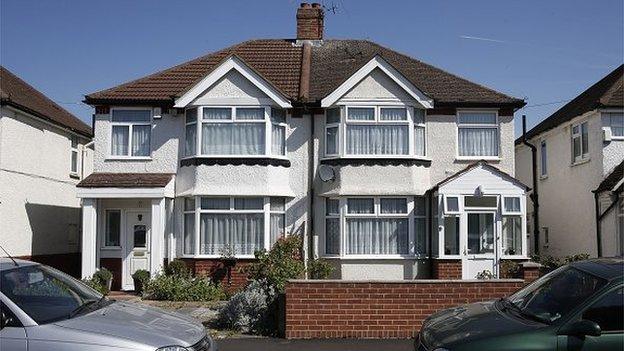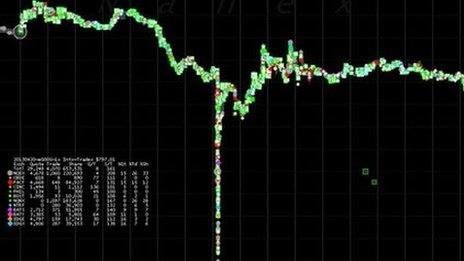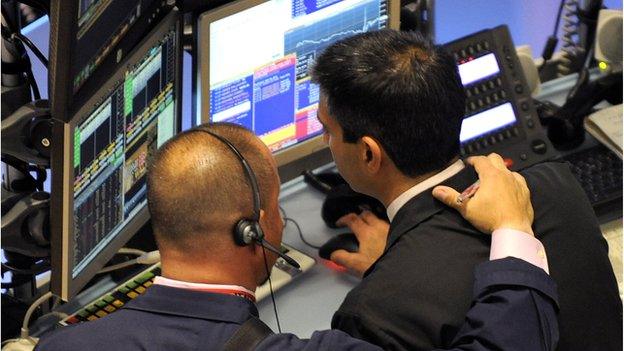Flash crash trader given another week to raise £5m bail
- Published

Navinder Singh Sarao operated Nav Sarao Futures from this semi-detached house in Hounslow, west London
A UK financial trader accused of contributing to the 2010 Wall Street "flash crash" has been remanded in custody and granted a second week to raise £5.05m in bail.
Navinder Singh Sarao first appeared at Westminster Magistrates' Court last Wednesday,
He failed to make bail last week. He will appear in court again on 6 May.
Mr Sarao, who wore a grey sweater and tracksuit trousers in court, has said he will oppose extradition to the US.
He spoke only to confirm his date of birth and address.
Mr Sarao has been charged by the US Department of Justice (DoJ) with wire fraud, commodities fraud and market manipulation.
A review date of the case remains as 26 May, but the date for a full extradition hearing has been pushed back from August to 24-25 September.
To secure his release, Mr Sarao must pay £5m and his parents must pay £50,000.
Mr Sarao's bail conditions state that he must stay at his parents' address in Hounslow, west London, each night, and cannot travel internationally or use the internet.
The DoJ claims that Mr Sarao and his firm, Nav Sarao Futures, made £26m ($40m) illegally over five years.
He has been accused of using an "automated trading program" to manipulate markets, and contributing to the flash crash of 6 May 2010. On that day, the Dow Jones index lost 700 points in a matter of minutes - wiping about $800bn off the value of US shares - before recovering just as quickly.
'Significant profits'
Regulators blamed high-frequency traders placing multiple sell orders for the crash.
High-speed trading is where share dealers use computer algorithms to buy and sell stocks in milliseconds.
The DoJ said last week that "Sarao's alleged manipulation earned him significant profits and contributed to a major drop in the US stock market on May 6, 2010".
Its statement continued: "By allegedly placing multiple, simultaneous, large-volume sell orders at different price points - a technique known as 'layering' - Sarao created the appearance of substantial supply in the market."
Mr Sarao was then able to buy and sell futures contracts tied to the value of the share indexes, it is alleged.
- Published22 April 2015

- Published22 April 2015

- Published22 April 2015
